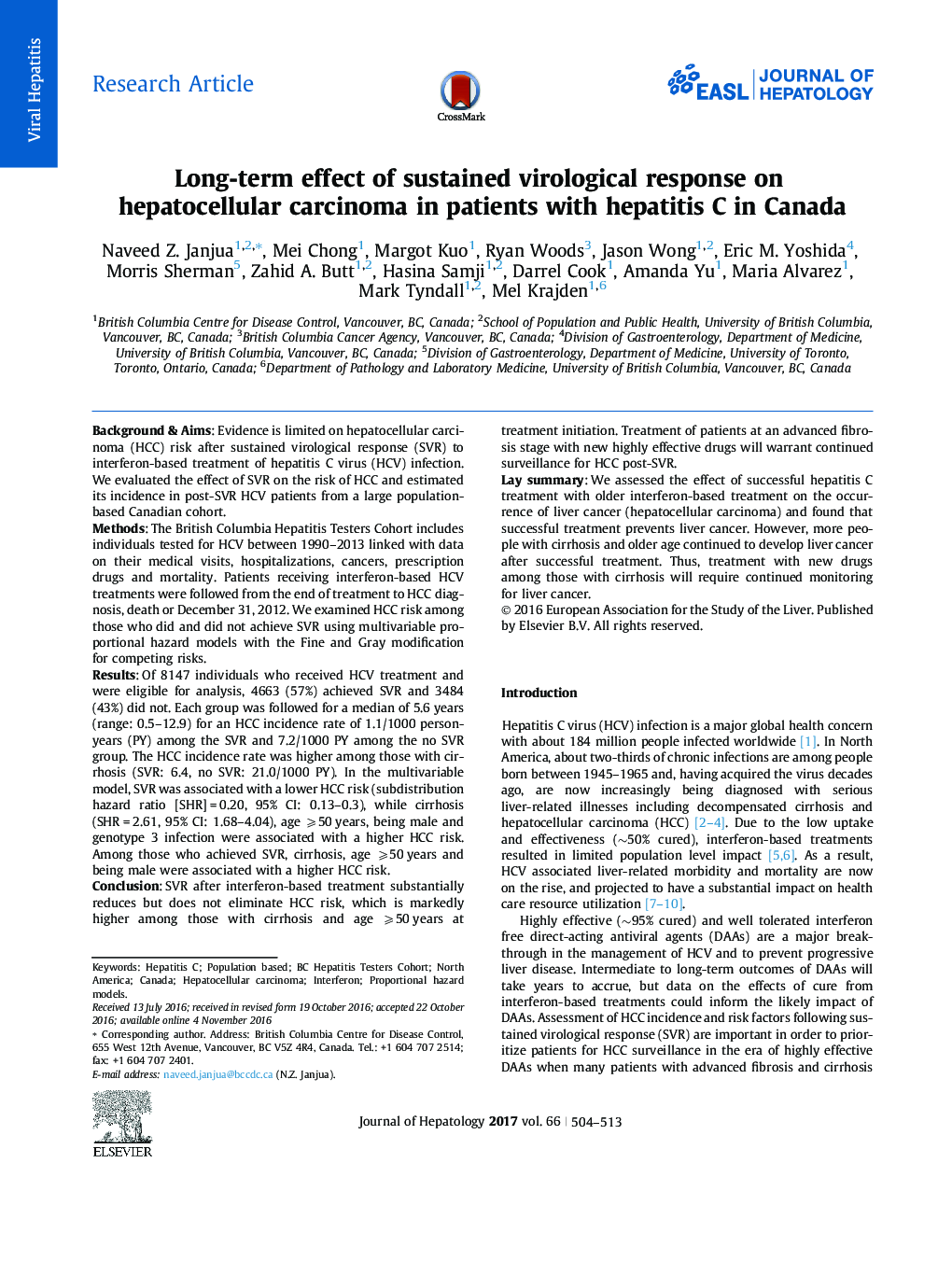| Article ID | Journal | Published Year | Pages | File Type |
|---|---|---|---|---|
| 5660620 | Journal of Hepatology | 2017 | 10 Pages |
Background & AimsEvidence is limited on hepatocellular carcinoma (HCC) risk after sustained virological response (SVR) to interferon-based treatment of hepatitis C virus (HCV) infection. We evaluated the effect of SVR on the risk of HCC and estimated its incidence in post-SVR HCV patients from a large population-based Canadian cohort.MethodsThe British Columbia Hepatitis Testers Cohort includes individuals tested for HCV between 1990-2013 linked with data on their medical visits, hospitalizations, cancers, prescription drugs and mortality. Patients receiving interferon-based HCV treatments were followed from the end of treatment to HCC diagnosis, death or December 31, 2012. We examined HCC risk among those who did and did not achieve SVR using multivariable proportional hazard models with the Fine and Gray modification for competing risks.ResultsOf 8147 individuals who received HCV treatment and were eligible for analysis, 4663 (57%) achieved SVR and 3484 (43%) did not. Each group was followed for a median of 5.6 years (range: 0.5-12.9) for an HCC incidence rate of 1.1/1000 person-years (PY) among the SVR and 7.2/1000 PY among the no SVR group. The HCC incidence rate was higher among those with cirrhosis (SVR: 6.4, no SVR: 21.0/1000 PY). In the multivariable model, SVR was associated with a lower HCC risk (subdistribution hazard ratio [SHR] = 0.20, 95% CI: 0.13-0.3), while cirrhosis (SHR = 2.61, 95% CI: 1.68-4.04), age ⩾50 years, being male and genotype 3 infection were associated with a higher HCC risk. Among those who achieved SVR, cirrhosis, age ⩾50 years and being male were associated with a higher HCC risk.ConclusionSVR after interferon-based treatment substantially reduces but does not eliminate HCC risk, which is markedly higher among those with cirrhosis and age ⩾50 years at treatment initiation. Treatment of patients at an advanced fibrosis stage with new highly effective drugs will warrant continued surveillance for HCC post-SVR.Lay summaryWe assessed the effect of successful hepatitis C treatment with older interferon-based treatment on the occurrence of liver cancer (hepatocellular carcinoma) and found that successful treatment prevents liver cancer. However, more people with cirrhosis and older age continued to develop liver cancer after successful treatment. Thus, treatment with new drugs among those with cirrhosis will require continued monitoring for liver cancer.
Graphical abstractDownload high-res image (96KB)Download full-size image
